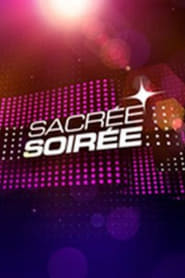
Michèle Torr
Michèle Torr (born Michelle Cléberte Tort 7 April 1947) is a French singer and author, best known in non-Francophone countries for her participation in the Eurovision Song Contest for Luxembourg in 1966 and for Monaco in 1977. Born in Pertuis, Vaucluse, Torr won her first singing contest at age fifteen, in 1962, winning the first year's On Chante dans mon Quartier contest in Avignon. Michèle was a tall beautiful woman with actress-like expression, and easily wins the audience over by singing the Édith Piaf song Exodus. Mireille Mathieu was runner-up that year with Les cloches de Lisbonne by Maria Candido. Then in 1963, at age sixteen, Michèle won a recording contract with the Mercury label, and opened for Jacques Brel at the Paris Olympia. She released three EPs (four songs each) throughout 1964, which were aimed at radio and juke-box play. Torr's release of Dans mes bras, oublie ta peine in 1964 was a big hit. Further releases of both original French material, and French covers of British and American hits, proved to be hit and miss. This setting the tone for Torr's career throughout the 60's, as she tried to find her niche. The Mercury contract ended in 1972. In 1966, Torr was invited to perform the Luxembourgish entry, Ce soir je t'attendais, at the eleventh Eurovision Song Contest. This was permitted as there has never been a requirement at Eurovision for the singer to be native to the country they represent; indeed Luxembourg only very rarely chose a Luxembourger as their performer. As Luxembourg had won the 1965 contest, the 1966 contest was held in Luxembourg City on 5 March. Torr wound up finishing joint-tenth out of eighteen participants, alongside the entries from Finland and Germany. Eleven years later, in 1977, Torr again took part in Eurovision, this time representing Monaco with the song Une petite française. The 1977 contest took place in London on 7 May, and Torr improved on her previous result, finishing fourth of eighteen participants. In between her two Eurovision appearances, Torr had also taken part in the French Eurovision pre-selection in 1970 with two songs, but had not progressed beyond the semi-final stage. Torr had continued to record and release singles during the early and mid 1970s like Une vague bleue, a big hit, but she achieved the biggest successes of her career at the end of the decade with Emmène-moi danser ce soir, La séparation and Discomotion. Through the 1980s she continued to release successful singles and albums and was a regular on television. Her career stalled in the 1990s, with much less new material being released, although compilations of earlier work kept her in the public eye. On 3 March 2008, she released her album Ces années-là on the Sony BMG Import label. On 12 November 2012, she released an album of religious songs Chanter c'est Prier on the Sony Music France S.M.A.R.T. label. As of 2015, She continues to tour worldwide on the French music nostalgia circuit, with almost a concert a month. Source: Article "Michèle Torr" from Wikipedia in English, licensed under CC-BY-SA.
Known For
Credits
- 2022 · La tournée triomphale des idoles as Self
- 2022 · The Unexpected Getaway as Self
- 2022 · La TV des 70's : Quand Giscard était président as Self (archive footage)
- 2019 · La Boîte à secrets as Self
- 2012 · The Unexpected Getaway as Self
- 2002 · The Bitterness of the Singer in Front of the Utility of Barbed Wire as Michèle Torr
- 2001 · Star Academy as Self
- 1990 · Stars 90 as Self
- 1987 · Le monde est à vous as Self
- 1987 · Sacrée Soirée as Self
- 1984 · La Chance aux chansons as Self
- 1982 · Champs-Elysées as Self
- 1977 · Fan School as Self
- 1976 · Les Jeux de 20 heures as Self
- 1976 · 30 millions d'amis as Self
- 1975 · Les Petits Papiers de Noël as
- 1975 · Système 2 as Self
- 1975 · Les Rendez-vous du dimanche as Self
- 1975 · Midi Première as Self
- 1972 · Midi trente as Self
- 1971 · Samedi soir as Self
- 1969 · Las joyas del diablo as Dorothea
- 1967 · Europarty as Self
- 1956 · Eurovision Song Contest as
- 1956 · Eurovision Song Contest as Self - Contestant



